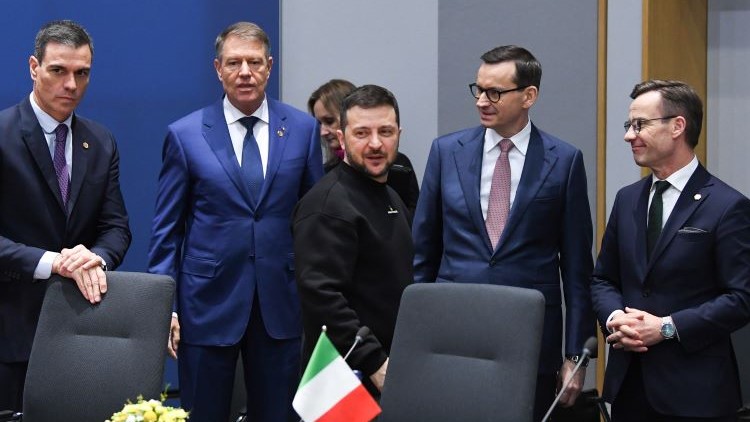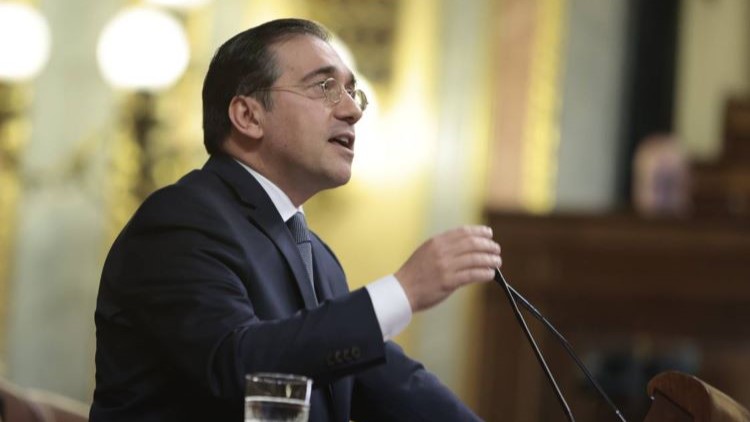The Diplomat
The President of the Government, Pedro Sánchez, coincided yesterday in Brussels with the President of Ukraine, Volodimir Zelenskyy, on the occasion of the first day of the extraordinary European Council, which will conclude today and which addresses, among other points, the EU support to Kyiv against the Russian invasion, the economic situation of the EU and migration.
The meeting was attended by Zelenskyy, as part of a tour that began on Wednesday in London, which continued in Paris and allowed him to speak yesterday before the European Parliament in Brussels, where he again called for “artillery, ammunition, modern tanks, modern long-range missiles and fighter jets” to stop the Russian troops, which “are advancing rapidly”.
Yesterday’s was Zelenskyy’s first face-to-face participation in an EU summit since the Russian invasion began almost a year ago. In Brussels, the Ukrainian leader held a joint meeting with EU High Representative for Foreign Policy Josep Borrell and the heads of government of Sweden, Poland, Italy, Romania, the Netherlands and Spain. “A pleasure to see you again, President Zekenskyy, this time in Brussels,” said Pedro Sánchez through his official Twitter account, where he posted a video in which he is seen shaking hands with the Ukrainian president. “Spain and Europe will continue to stand by the Ukrainian people in their struggle for freedom,” he added. Separately, Pedro Sánchez held a bilateral meeting with the German Chancellor, Olaf Scholz, to address the issues of the Extraordinary Council.
During the meeting with Zelenskyy, as reported by government sources to press agencies, Pedro Sánchez conveyed to the Ukrainian head of state the “unequivocal and resounding” support of Spain to Ukraine and claimed the maximum possible support from the international community to the ten-point peace plan presented by Zelenskyy during the last G20 Summit, which includes the application of the UN Charter to restore Ukraine’s territorial integrity, the withdrawal of Russian troops, the cessation of hostilities, guarantees to energy and nuclear security, guarantees to the right to food and the release of all prisoners. “We cannot lower the pressure towards Russia,” Sanchez warned yesterday during his speech at the extraordinary European Council.
Regarding the number of Leopard tanks that Spain is going to send to Ukraine, Sánchez told the media, before the beginning of the meeting, that “it is an issue that we are working on in the framework of NATO with the rest of the European countries and they will understand that all this is going to be specified, but with the due discretion that we must have in this matter”. For his part, the Minister of Foreign Affairs, José Manuel Albares, told the media yesterday that Spain has “no new plans” to send military support to Ukraine and reiterated that the Government is in favor of “acting in concert with European partners and transatlantic allies” because unity is “the best tool” in the face of the challenge of the war in Ukraine.
Yesterday’s meeting in Brussels came almost a week after the 24th EU-Ukraine Summit – the first since the outbreak of the Russian war and since Russia was granted candidate status to join the Union – which focused, above all, on Ukraine’s European integration and accession process, the EU response to Russia’s war of aggression against Ukraine and global food security.







